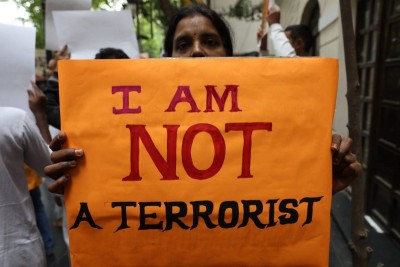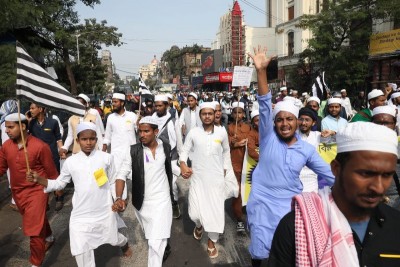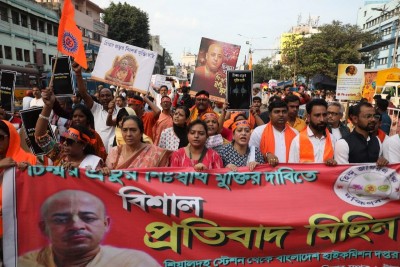 S Jaishankar
S Jaishankar
S Jaishankar explains diplomacy through Ramayana and Mahabharata, says Lord Krishna, Hanuman 'biggest diplomats '
Pune: External Affairs Minister S Jaishankar on Sunday said the great Indian epics, Ramayana and Mahabharata, are full of lessons in diplomacy and gave the examples of Lord Hanuman and Lord Krishna, news agency ANI reported.
Speaking at an event in Pune for the release of ‘Bharat Marg’—the Marathi translation of his English book "The India Way: Strategies for an Uncertain World," he said, "The biggest diplomats in the world were Lord Krishna and Hanuman... If we look at Hanuman, he had gone beyond diplomacy, he went ahead of the mission, contacted Sita, and set Lanka on fire too."
He described Lord Krishna and Lord Hanuman as "greatest diplomats."
Dwelling on the subject of strategic patience, Jaishankar cited the example of Lord Krishna, who forgave Shishupala several times for his wrongs.
“Krishna made a promise that he will forgive 100 mistakes of Shishupala, but at the end of the 100th one, he would kill him. It demonstrates the importance of one of the most important qualities of a good decision-maker,” Jaishankar was quoted as saying in the report.
Referring to the epic Mahabharata, he compared ‘Kurukshetra’—the battlefield where Kauravas and Pandavas engaged in a war—with "Multipolar India".
Jaishankar explained strategic autonomy as the ability of a state to pursue its own national interest and preferred foreign policy without being constrained by other states.
“India has pursued the policy of strategic autonomy ever since its independence during the bipolar cold war (1947-1991), unipolar times (1991-2008) and multipolar times(2008-present),” he said.
“This strategic autonomy is not an isolation nor an alliance. It has to be recalibrated as per the security environment to ensure India's sovereignty and territorial integrity are maintained,” he added.
Drawing an incident from Mahabharata, he explained strategic deception.
Jaishankar said: “Arjuna's son Abhimanyu was killed brutally by many warriors from Kaurava's side. To avenge his son's death, Arjuna vows to kill Jayadratha (who was the main culprit) by the next evening, and if he fails, would commit suicide by jumping onto a burning pyre.
“Kauravas take this opportunity and hide Jayadratha till evening so that Arjuna will fail and kill himself.
“As the sun sets, Jayadratha assumes that Arjuna lost the challenge and appears in front of him. Then Krishna asks Arjuna to quickly shoot and arrow and it cuts Jayadratha's head.”
Jaishankar said just as Pandavas couldn’t choose relatives, India, too, cannot choose its neighbours.
"It is a reality to us....Pandavas could not choose relatives, we can't choose our neighbours. Naturally, we hope good sense prevails" said EAM Jaishankar when asked if "rogue nation (Pakistan), who happens to be nuclear power, the neighbour will be assets or a liability," according to the ANI report.
“Pakistan has received backlash from the global community for its inefficiency in combatting terrorism. It needs to mend its ways in order to have other countries aid it in times of distress. Pakistan now has very few allies, out of which Turkey is not in a position to help Pakistan, and China never gives grants but only loans,” Jaishankar said, as per the report.
He drew the example of Karn and Duryodhan from Mahabharata as those violating rules-based order.
Their friendship not only brought their own destruction but did no good for the society and massive destruction, irreversible damage and abysmal suffering to their kith and kin.
Friendship of two persons, predominantly evil in disposition, can only end up harming each other and the entire society around them, he said, reported ANI.
“China's efforts to reclaim and militarize disputed outposts in the South China Sea, its willingness to use coercion and intimidation along with other provocative actions undertaken to enforce its expansive and unlawful South China Sea maritime claims, undermine the peace and security of the region. Beijing has offered no coherent legal basis for its expansive maritime claims in the South China Sea,” Jaishankar pointed out.
He also explained "tactical adjustment" by giving examples of Yudhisthira lying about Ashwathama's death.
“In this instance, Krishna knows Drona's only weakness is his son Ashwathama. So, he asks Yudhisthira to spread the word that Ashwathama is dead, which led to Drona's death,” Jaishankar said.
He also thanked Prime Minister Narendra Modi for making him the External Affairs Minister.
"Being the foreign secretary was the limit of my ambition, never even dreamt of becoming a minister…not sure any PM, other than Narendra Modi would have made me minister," he said.
Support Our Journalism
We cannot do without you.. your contribution supports unbiased journalism
IBNS is not driven by any ism- not wokeism, not racism, not skewed secularism, not hyper right-wing or left liberal ideals, nor by any hardline religious beliefs or hyper nationalism. We want to serve you good old objective news, as they are. We do not judge or preach. We let people decide for themselves. We only try to present factual and well-sourced news.







